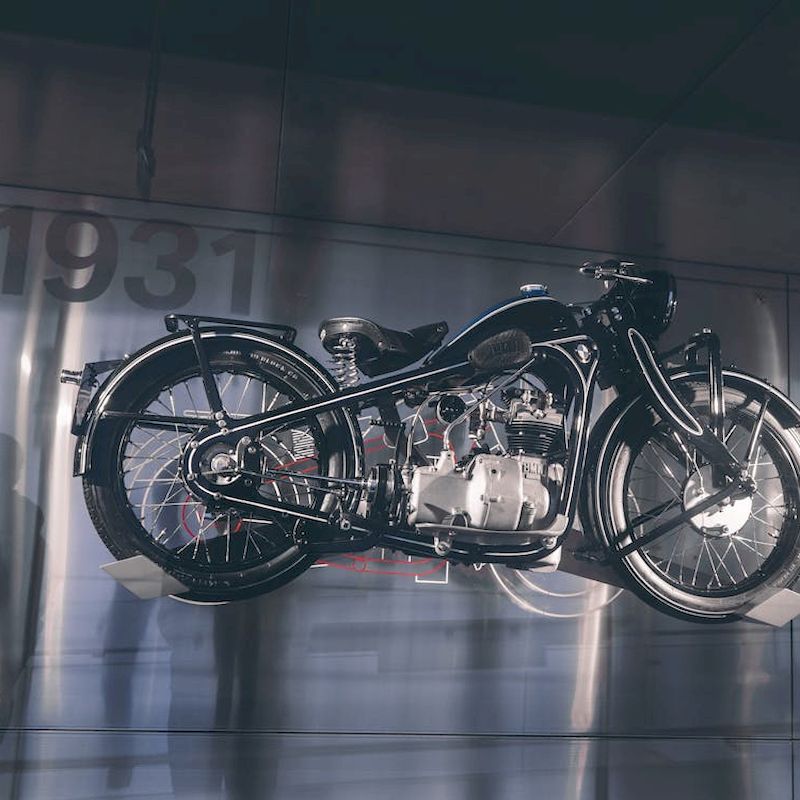Introduction
Motorcycling is an exhilarating activity that attracts millions of enthusiasts worldwide. The freedom of the open road, the thrill of acceleration, and the sense of adventure all come together when riding a motorcycle. However, potential riders often have many questions, including how old do you have to be to own a motorcycle. The answer isn’t straightforward, as age requirements can vary depending on local laws, the type of motorcycle, and licensing regulations. In many regions, one can own a motorcycle at a relatively young age, but different factors influence when someone can actually ride on the road legally. This comprehensive guide will explore age requirements for motorcycle ownership, licensing processes, state and country regulations, and important safety considerations for riders of all ages. By understanding these elements, you will be better prepared to navigate the world of motorcycle ownership, whether it’s a passion for the open road or for competition.

Understanding Motorcycle Ownership Regulations
Ownership of a motorcycle requires knowledge of local laws and regulations. Each state or country will have different rules regarding both ownership and operation. Familiarizing yourself with these regulations ensures compliance and promotes safety.
Age Requirements for Motorcycle Ownership
In general, the age requirement to own a motorcycle often varies from state to state or country to country. Here are some common legal stipulations regarding age and ownership:
- Minimum Age for Ownership: In many places, the minimum age to own a motorcycle can be as young as 15 or 16, but some states might require owners to be at least 18.
- Legal Guardians: In cases where minors own a motorcycle, many jurisdictions require parental or guardian consent. Thus, it’s advisable for minors to have their parents assist them in legal matters related to ownership.
- Specific Regulations: Certain regions have specific regulations, including whether minors can purchase and own a motorcycle independently of their parents. Understanding these can help set proper expectations.
Licensing Requirements
In addition to ownership, you must also consider licensing requirements to legally ride a motorcycle:
- Learner’s Permit: Many places allow individuals as young as 15 or 16 to apply for a learner’s permit. This permit generally allows limited riding privileges and may require supervised riding.
- Full Motorcycle License: Obtaining a full motorcycle license usually requires completing a designated age requirement or training course. Most states require riders to be 18 years old to obtain a full license, although some permit individuals younger than 18 to qualify under specific conditions.
State-Specific Regulations
In the United States, each state has its own Department of Motor Vehicles (DMV) that establishes rules regarding motorcycle ownership. As a result, it’s critical to research the specific regulations in your state or locality. Consider the following:
- Check State DMV: Visit the official website of your state’s DMV or equivalent agency to get accurate information about motorcycle ownership laws.
- Consult Local Laws: In addition to state laws, check for local city or county regulations that might impact motorcycle ownership, particularly for minors.
Factors Influencing Your Decision to Own a Motorcycle
Deciding to own a motorcycle involves more than just understanding age requirements. Various factors influence your decision and commitment as a motorcycle owner.
Safety Considerations
Motorcycles are inherently different from cars. It’s important to acknowledge the risks involved. Key safety considerations include:
- Rider Safety Training: Taking a motorcycle safety course is vital to develop skills and learn the rules of the road. Many states offer training programs that can fulfill licensure requirements and reduce insurance costs.
- Safety Gear: Investing in proper safety gear is essential. This includes helmets, gloves, jackets, and protective pants. Wearing the right gear can significantly reduce injury risk in the event of an accident.
Maintenance Responsibilities
Owning a motorcycle comes with the responsibility of routine maintenance. Regular upkeep will prolong the life of your motorcycle and ensure safe operation. Tasks include:
- Regular Inspections: Check tire pressure, fluid levels, and brakes regularly to ensure they are functioning correctly.
- Regular Servicing: Follow the manufacturer’s guidelines for regular servicing, which may include oil changes, brake inspections, and battery maintenance.

Financial Implications
Consider the financial responsibilities associated with motorcycle ownership:
- Purchase Price: Motorcycles vary greatly in price depending on model, brand, and features. Budget for an affordable option that includes not just the purchase price but also financing, taxes, and potential dealer fees.
- Insurance Costs: Motorcycle insurance can vary widely based on factors such as age, experience, and the type of motorcycle. Research insurance costs to include them in your overall budget.
- Operating Costs: Factor in fuel consumption, maintenance, and potential repairs. Understanding these costs will give you a more comprehensive picture of motorcycle ownership.
Lifestyle Compatibility
Lastly, think about how motorcycle ownership fits into your lifestyle and daily routine. Here are elements to ponder:
- Commute vs. Leisure Riding: Decide if you’re intending to use the motorcycle primarily for commuting or leisure riding. Each option might require different motorcycle features.
- Long-Distance Riding: If distance is a consideration, assess the comfort and storage capacity to accommodate long-distance travel. Some motorcycles are better suited for tour riding than others.
Popular Motorcycles for First-Time Owners
If you’re considering motorcycle ownership, exploring beginner-friendly models can help ease the transition into the motorcycling world. Here are some motorcycles to consider for first-time riders:
Cruisers
Cruisers, known for their laid-back riding positions and comfortable ergonomics, are excellent choices for beginners. Here’s a popular model:
- Honda Rebel 300: This lightweight cruiser is known for its user-friendly operation and smooth handling, making it ideal for new riders. It has a low seat height and a relaxed riding position.
Sport Bikes
For those who prefer a more spirited riding experience, sport bikes provide agility and speed. Look at options such as:
- Yamaha YZF-R3: Known for its nimble handling and thrilling performance, this sport bike is accessible for beginners. With its lightweight design and excellent performance, the YZF-R3 is a great introduction to sport riding.
Dual-Sport Motorcycles
If you crave versatility, a dual-sport motorcycle allows you to engage in both on-road and off-road riding. One popular beginner-friendly option is:
- Kawasaki KLR650: This bike is known for its ruggedness and adaptability. Its comfortable seat height and dual capabilities make it a great choice for new riders who are keen to explore both environments.
Adventure Bikes
For riders interested in long-distance adventure riding, adventure bikes blend off-road capabilities with touring comfort. Consider models like:
- BMW G 310 GS: This lightweight adventure bike boasts great versatility and comfort for long rides. Its reliable features and strong build make it suitable for various terrains.
Electric Motorcycles
With the rise of electric vehicles, electric motorcycles are becoming more common even for beginners. A suitable model may include:
- Zero FX: This electric motorcycle provides a quiet and eco-friendly option for new riders. It offers smooth acceleration and is easy to handle, making it ideal for urban environments.
Understanding how old you have to be to own a motorcycle is only part of the story. The licensing process often involves several key steps that must be followed, regardless of age.
Obtain a Learner’s Permit
Most jurisdictions require aspiring motorcycle riders to obtain a learner’s permit before they can legally operate a motorcycle. Here is how to get one:
- Age Requirements: Ensure that you meet the minimum age requirement for obtaining a learner’s permit in your state.
- Take a Knowledge Test: Many states require passing a written knowledge test covering safety and operating rules.
- Application Process: Submit the necessary application and documents, and pay the associated fees.
Complete a Safety Course
Many states emphasize completing an approved safety training course to enhance skills and knowledge in handling a motorcycle.
- Certification Benefits: Successfully completing a safety course often replaces the need for a road test and may lower insurance premiums.
- Course Content: Courses typically include both classroom instruction and practical riding exercises. This comprehensive approach helps prepare new riders for real-world experiences.
Apply for a Full Motorcycle License
Once you’ve successfully obtained a learner’s permit and completed a safety course, you’ll need to apply for a full motorcycle license. The terms may vary by state, but generally, the following steps must be completed:
- Meet Age Requirements: Ensure that you have reached the required age to apply for a full motorcycle license, which typically is 18 years in many states.
- Pass Skills Test: Depending on your state, you may need to pass a practical riding skills test to demonstrate your competence in operating a safely.
- Submit Application: Complete the required application forms and pay any necessary fees.
Maintain Your License
Once you obtain your license, it’s crucial to maintain good standing.
- Renewal: Be aware of license renewal periods and requirements to avoid any penalties or additional fees.
- Understanding Restrictions: Some motorcyclists may have restrictions during their initial licensing period. Make sure to understand and adhere to these restrictions until they are lifted.

Conclusion
Understanding how old you have to be to own a motorcycle is an important first step in the journey to ownership. The process encompasses multiple facets, including legal requirements, licensing, safety training, and vehicle selection. Additionally, the joy of riding a motorcycle comes with responsibilities related to safety, maintenance, and adhering to regulations.
As you consider becoming a motorcycle owner, take the time to educate yourself on not only age requirements but also the nuances of ownership. Investing in a motorcycle safety course can provide invaluable knowledge and skills, ensuring a safer riding experience. Keep in mind that owning a motorcycle brings freedom and excitement, bridging the gap between transportation and adventure.
By following the insights and guidance within this article, you’ll be better prepared to embark on your journey towards ownership. Remember to ride responsibly, prioritize safety, and embrace every adventure the open road has to offer.